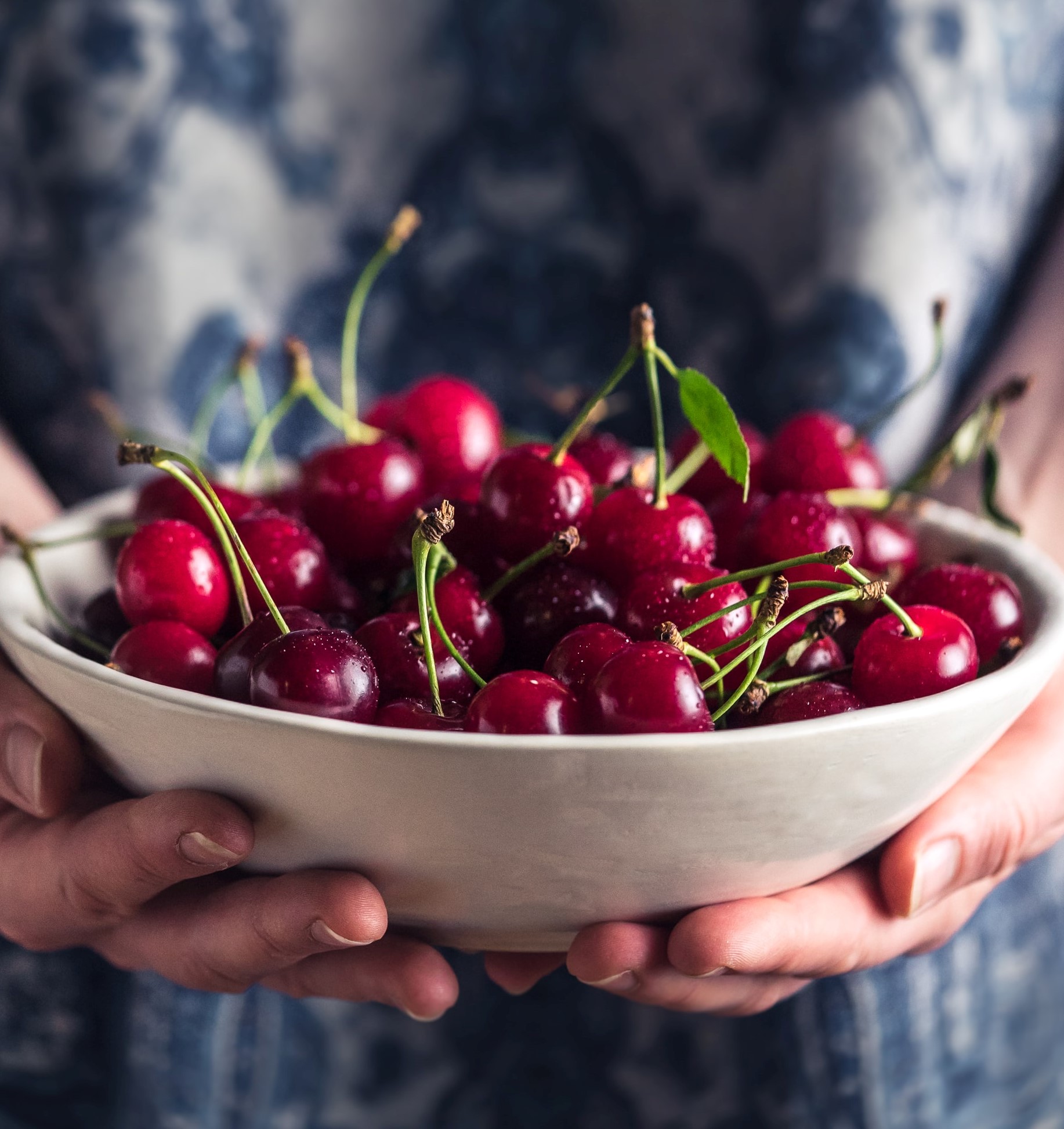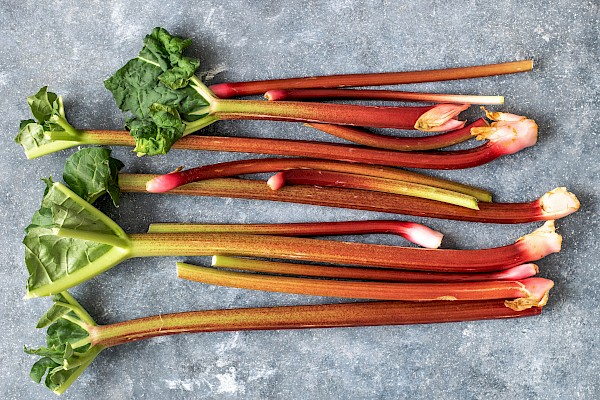It’s good to eat cherries
They are round, red, plump, and you rarely get just one. The cherry season has finally started, and, let’s be honest, who can resist this luscious, sweet fruit? You shouldn’t eat too many of them, but enjoying them in moderation will mean that you benefit from a vitamin bomb. A good handful of cherries, approximately 20, gives you one of your recommended five-a-day of fruit and vegetables.
What makes cherries healthy?
The tasty fruit is packed with super nutrients. Cherries are an excellent source of vitamin C and antioxidants that boost the immune system. In addition, they are a healthy sleep aid because of their high melatonin content. Melatonin is a hormone that plays a central role in regulating the sleep-wake cycle and cherries aid this regulation, making them good for your sleep. Cherries also have anti-inflammatory properties, another health factor. What’s more, the fruits contain numerous minerals such as iron, potassium, calcium and magnesium.
What is the best way to eat cherries?
Unlike other fruits, cherries are harvested when they are already ripe, which means that they don’t need to ripen further, so should be eaten as soon as possible. The journey of a ripe, lusciously red cherry into your belly should therefore be short. Although we live in Switzerland’s cherry canton, we don’t all have a “Chriesibaum” (cherry tree) in our gardens. It’s not so easy for us to pluck a handful of cherries that will end up in our bellies within a few minutes. And even those people whose gardens are a cherry paradise will probably prefer to harvest in larger quantities, as the ripe cherries will also attract many birds to the tree, and so not last for very long.
Because sweet cherries have a delicate skin, they should not be washed in running water. To preserve the full flavour, wash the cherries in a bowl of cold water and do not remove the stalk. Their delicate structure means they bruise very easily. That is why you should store cherries loosely in the fridge.
Cherry-pit spitting
Everybody knows cherry-pit spitting from their childhoods. Cherry pits have been spat in the garden, the school yard, at forest barbecues or on school trips in early summer – and always will be. Fun for young and old that gets serious at the cherry-pit spitting championship. The official world championship takes place in Germany every year. The world record was set in 2017 by Swiss champion Thomas Steinhauer. Guess how far the record-holder spat his cherry pit? (You will find the answer at the end of this article.)
Watch the proof here!
Zug cherries (“Zugerchriesi”)
This year, Zug’s Cherry Market was already over by 2 July. Heavy rainfall split the cherries open, so spotted wing drosophila, a type of fruit fly, could quickly spoilt the fruit by laying eggs in it. Fortunately, however, you can still buy cherries directly from the region’s fruit farms and cherry farmers. Do you fancy some Zug cherries? You can find out where to buy some here.
Our recipe idea:
Cherry gratin (Serves 4)
- 800g cherries
- 3 tablespoons pear butter or honey
- 1 tablespoon lemon juice and zest
- 3 eggs
- 4 tablespoons sugar (tip: you can use less)
- 200 ml cream
- 4 tablespoons sliced almonds
Method: Mix the cherries with the pear butter or honey and lemon juice, and put into a gratin dish. Separate the eggs. Beat the whites with 1 tablespoon sugar until stiff. Whisk the yolks with 3 tablespoons sugar until you have a light, foamy mixture. Then add the lemon zest. Whip the cream, carefully fold the cream, beaten whites and yolk mix together, then pour over the cherries. Put the gratin dish into the oven and bake at 220°C for 8 to 10 minutes. Meanwhile, toast the sliced almonds in a pan with no oil and finally sprinkle over the cherry gratin. The cherry gratin tastes best when served lukewarm.
(Source)
(Answer: world record in the cherry-pit spitting championship in 2017: 22.52 metres!)
 subscribe to newsletter
subscribe to newsletter


